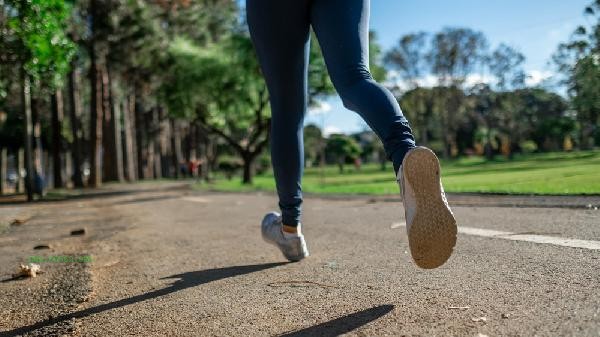Right side abdominal pain during running is usually related to exercise related abdominal pain, which may be caused by factors such as diaphragm spasm, visceral traction, gastrointestinal dysfunction, etc.

1. Diaphragmatic spasm
When running vigorously, irregular breathing rhythm may lead to insufficient blood supply to the diaphragm, causing spasmodic pain in the right costal area. It is recommended to use abdominal breathing during running, control the pace during the starting stage, and bend down to press the painful area to relieve pain. This situation is more common in people who lack warm-up or exercise immediately after meals.
2. Internal organ traction
The shaking of the liver during running may stimulate the hepatic capsule nerves and cause traction pain. This type of pain often occurs in individuals who have been lacking exercise for a long time and experience sudden increases. It is recommended to do dynamic stretching before exercise and tighten the core muscle group during running to reduce organ shaking. People with a larger weight base are more likely to experience such symptoms.
3. Gastrointestinal dysfunction
Reduced blood supply to the gastrointestinal tract during exercise may cause intestinal spasms, which are more likely to be triggered if high-fat and high fiber foods are consumed within two hours before running. Pain often presents as cramping pain, accompanied by excessive bowel sounds. Adjusting eating time and choosing easily digestible foods can effectively prevent it.

4. Chronic liver and gallbladder disease
Potential cholecystitis or gallstones patients may experience biliary colic attacks during exercise, with pain radiating to the right shoulder and back. This type of pain is often accompanied by prodromal symptoms such as postprandial bloating and aversion to greasiness, and requires abdominal ultrasound examination. It is recommended that this group of people avoid vigorous exercise on an empty or full stomach.
5. Insufficient abdominal muscle strength
Weak core muscle group can lead to poor visceral stability during running, and overcompensation of the right rectus abdominis or oblique abdominis muscle can cause pain. Core strength can be enhanced through exercises such as plank support and side bridges, and abdominal breathing belts can be used to assist in stabilizing the torso during running.

Daily attention should be paid to fully warming up before exercise, transitioning from brisk walking to slow jogging; Maintain a uniform breathing rhythm while running, and it is recommended to take three steps, one exhale and one inhale; Supplement electrolyte solution after exercise. If the pain recurs or is accompanied by symptoms such as fever and jaundice, it is necessary to promptly investigate biliary system diseases. Regular core muscle training and gradually increasing exercise intensity can effectively prevent the occurrence of exercise-induced abdominal pain.







Comments (0)
Leave a Comment
No comments yet
Be the first to share your thoughts!